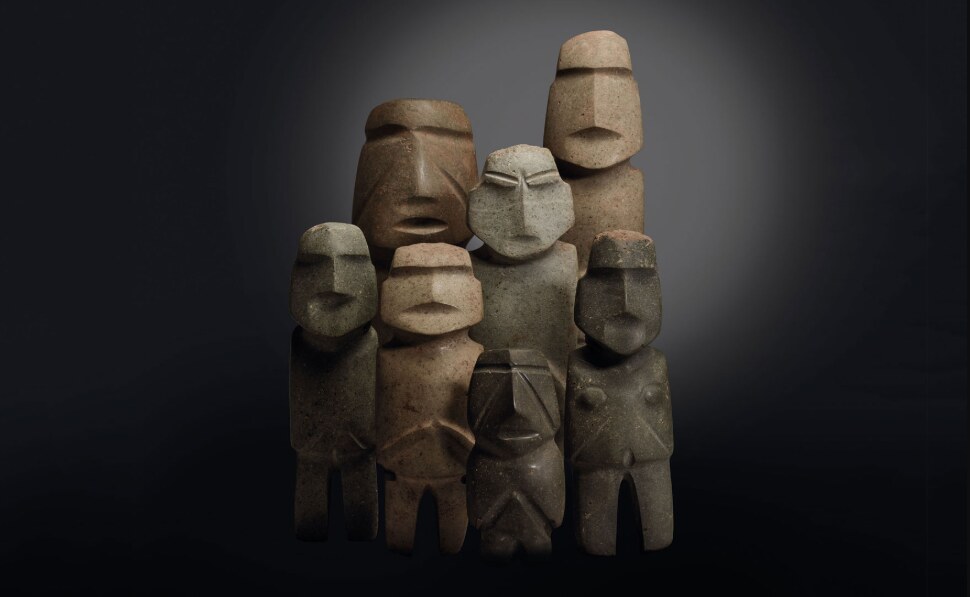Greek mythology has enthralled many minds for centuries, especially stories about gods, heroes, and monsters. Ancient folklore possesses so much drama as well as symbolism and has found their place in the modern artistry of tattoos. Greek mythology tattoos enable carrying a piece of those timeless stories within the skin because of the designs rich in profound meaning. Whether it’s the mighty Zeus or the tragic Icarus, these tattoos are more than just art—they’re a connection to a rich tapestry of myth and meaning. In this guide, we’ll dive deep into the allure of Greek mythology tattoos, explore popular designs, and provide insights for those considering this form of body art.
Table of Contents
ToggleWhy Greek Mythology Tattoos?
Rich Symbolism
Greek mythology is replete with symbolism representing various themes such as love, strength, ambition, and wisdom. Each character or myth bears several layers of meaning and gives tattoo enthusiasts scope for choice in designs that are personable.
- Athena: She embodies war and wisdom. She symbolizes the glory of intelligence, strategy, and protection.
- Poseidon: He unfolds power, fluidity, and unpredictability in life – the god of the sea.
- Medusa: Often misunderstood, Medusa can symbolize feminine strength, transformation, or the rejection of societal norms.
Eternal Beauty
The intricate art of Greek statues and pottery translates beautifully in terms of tattoo designs. The classical style, with clean lines and dramatic shading, ensures that these tattoos are visually striking for a good many years.
Must read: Art Is About Sharing What You Know: A Creative Journey.
Common Greek Mythology Tattoo Designs
Gods and Goddesses
Images of deities: This is probably the most colorful of themes in Greek myths’ tattoos. The designs usually get elaborated into detailed portraits or symbolic representations.
- Zeus: He happens to be the very-popular king of gods. Along with the portrait, lightning bolts or an eagle, and a throne of majesty, can be used to signify his kingship.
- Aphrodite: The goddess of love or beauty is often depicted with roses, doves, or seashells.
- Hades: Hades tattoos may include Cerberus, the three-headed dog of Hades, or a skull theme to represent his position as the god of the underworld.
Heroes and Their Quests
Epic tales of Greek heroes have become triumph, tragedy, and the human condition. Tattoos of these characters often reflect ideas such as bravery and perseverance.
- Hercules: These tattoos represent a sojourning symbol of the legacy of strength and human power over foes.
- Odysseus: Tattoos of Odysseus are often seen with a ship or sea imagery and represent adventure and ingenuity.
- Achilles: A hero warrior in the Iliad and a symbol of strength, invincibility, or weakness through human frailties.
Legendary Beings
Greek mythology abounds with fantastic, wonderful creatures very suitable for bravely and imaginatively applied tattoos.
- Medusa: A serpent-haired aspect of Medusa can be very striking, and she often symbolizes protection or transformation.
- The Winged Horse: A free and inspiring emblem, very popular among those desiring a more inspirational design.
- Cerberus: The three-headed guard dog of the underworld, more dramatically designed for those interested in darker themes.
Scenes and Stories
Some fans of tattoos choose complete compositions illustrating popular episodes from Greek mythology. These pan-dimensional pieces often take the form of sleeve or back tattoos that narrate complex stories through art.
- Fall of Icarus: This tragic tale with this boy’s fall from the sky shows profound visual metaphor for ambition and overreach.
- Pandora’s Box: The picture of a situation where Pandora opens her infamous box reminds one of curiosity, consequences, and hope.
- The Trojan Horse: A design of genius strategy and deception, with deep historical or mythological significance.
Styles for Greek Mythology Tattoos
Realism
This style focuses on the extravagant creation of lifelike portraits and slight details. Realistic tattoos of Greek gods look like marble statues and are filled with dramatic shading and depth.
Blackwork
Using black ink, with no colors mixed, contrast and bold designs are created. Blackwork would be excellent for art inspired by Greek pottery or for silhouettes of mythological figures.
Neo-Traditional
Neo-traditional tattoos are a fusion of age-old bold lines with modern coloring schemes and heavy shading. This can be a revitalizing way in which Greek mythology tattoos could be.
Minimalist
Simple designs fit minimalist best for those who appreciate subtlety in simple lines and symbolic elements. A little lightning bolt for Zeus or a small olive branch for Athena can start to speak deeply without being overwhelming.
Finding the Best Greek Mythology Tattoo for You
Link with the Plot
First, you must choose and research a story or character resonating with you before settling on a design. Greek mythology tattoos are more personal because they hold meanings.
Placement Considerations
The size and detail of your tattoo will often determine where it will be most visible on the body. Large designs like full prints of gods or detailed scenes fit well on the back, chest, or thighs. Smaller symbols such as a laurel wreath or a single mythological creature fit snugly on forearms, wrists, or ankles.
Collaborate With Your Artist
Work well with a tattoo artist that specializes in your style of choice. Bring in references, but let them interpret the design to fit your body as well as your tastes.
Care Tips for Greek Mythological Tattoos
Aftercare is important to help your tattoo heal correctly and maintain its colors. Here are some tips:
- Always follow your artist’s recommendations because they may have some special recommendations on the ink and technique to be used.
- Keep It Clean: Gently wash your tattoo with mild soap and lukewarm water.
- Moisturize: Apply a tattoo-specific lotion to prevent dryness and cracking.
- Avoid Sun Exposure: Tattoos may be faded by sun exposure; therefore, use a sunscreen once healed.
- Be patient: Healing takes time—don’t scratch or pick at your tattoo, ever.
Lasting Appeal of Greek Mythology Tattoos
Greek myths are not just flat lines in ink—it is an artistic historical entity and personal expression too. Whether it is for stories of gods or heroes, the charm of mythical beings, or for theme-bearing ancient symbolic import, the tattoos hold a lot of scope for personal expression. As ageless as the myths they were born from, Greek mythology tattoos bear testament to how long-lasting storytelling actually is and the human thirst to connect with our heritage. So, should you consider inking this style, welcome the journey—it’s not just a tattoo; it’s a piece of living history inked onto your skin.





